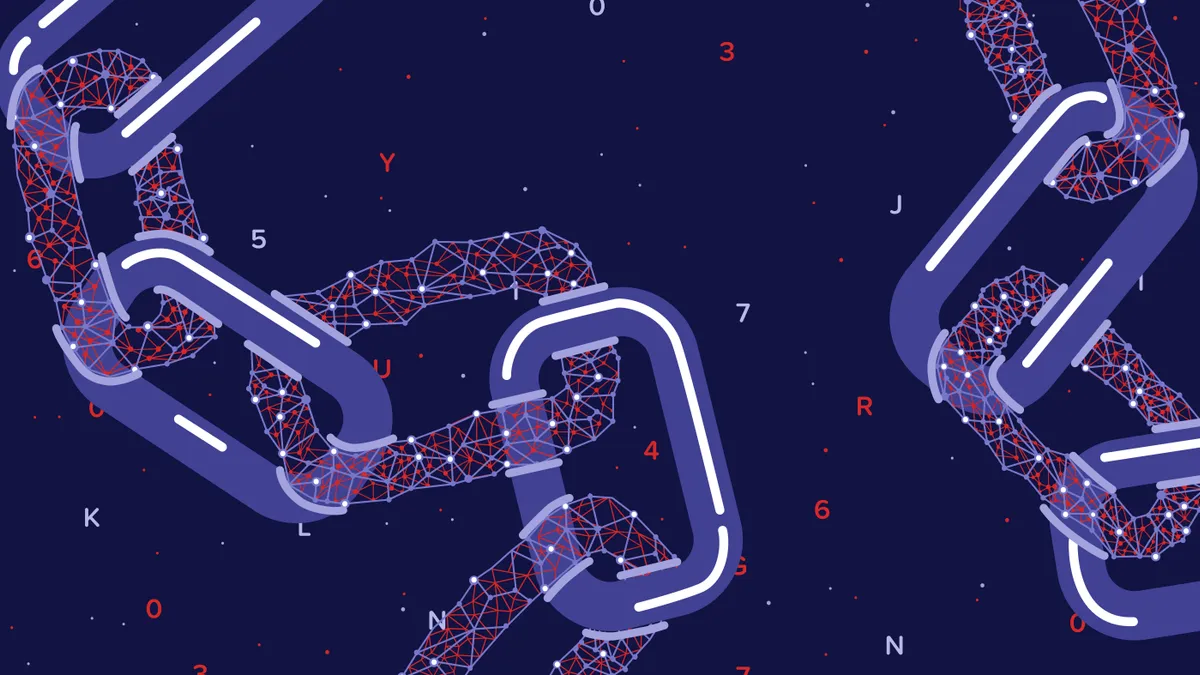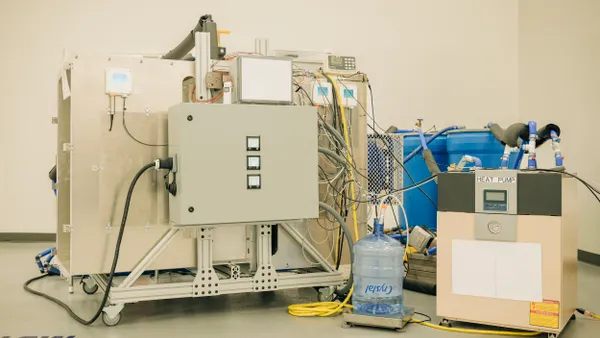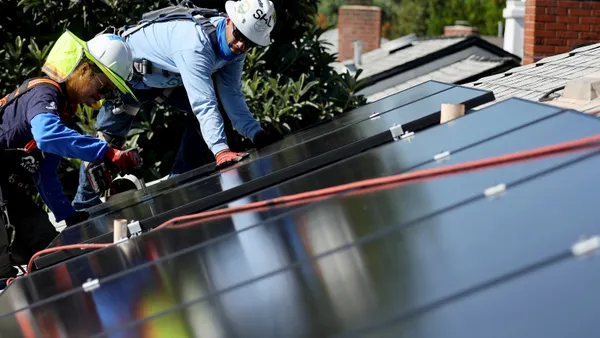Dive Brief:
- Four utilities that serve New York — Avangrid, Con Edison, New York Power Authority and National Grid — announced a collaboration to discover and develop what they call "transformative" ways shared blockchain infrastructure could be used in the energy industry to benefit customers, as outlined in a post for Greentech Media.
- The group came up with more than 50 blockchain uses that should be further explored in the electric power industry, including smart contracts, cybersecurity, decentralized energy markets, smart electricity metering and an electric vehicle (EV) charging platform.
- The group will continue to research blockchain and learn from other industries as the technology evolves, with the ultimate goal of drawing up a joint proof-of-concept and testing their findings.
Dive Insight:
The four utilities' method of pursuing blockchain is interesting because competitors so often vie to be the first to adopt a new technology. But this group believes it makes sense to explore blockchain in a collaborative fashion because "many blockchain solutions inherently involve multiple parties sharing information to enable new services, and we are looking to provide value and stimulate innovation across our networks in the state ... We’ve come together to explore blockchain technology in order to increase our impact and focus on use cases applicable across New York state."
Generally speaking, though, power customers throughout the country have less — if any — choice in selecting electricity providers, so the structure is a bit different than companies that directly compete for customers' business. Therefore, a collaborative effort among power companies to advance the industry might make more sense than, for instance, automobile manufacturers collaborating on new technology.
The New York utilities stated a focus on finding customer benefits for blockchain. The widespread topic of security and privacy for customer information is a huge opportunity for advancement. Blockchain is considered much more secure than other means of information exchange and storage, and so far blockchain systems have not been hacked. Blockchain can provide customers with greater peace of mind that their personal data is less likely to get leaked or stolen during a system hack. Utilities could use smart contracts to increase security, efficiency and transparency in customer-facing services as well as for internal facilities management and vendor contracts.
The concept of using blockchain for EV charging stations would also benefit utility customers. EVs provide a prime example of how modern society's growing use of connected devices, and thus uses for the power grid, are expanding, greatly increasing the amount of data moving around and power grid complexity. Blockchain could make the grid more resilient as well as responsive to individual devices that draw power from it.











